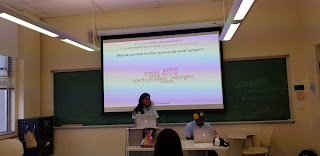Splash@UC Berkeley
Diwali w Veena
Except she does not want to be called Athai
She's too young she says.
Not the generation of my Dad!!
Limits to No Limits
The history and politics of it all.
The Refrigerator Mom
The "refrigerator mom" theory in autism was coined by child psychiatrist Leo Kanner in the 1940s and was further popularized by psychologist Bruno Bettelheim in the 1950s and 1960s. Kanner originally suggested that autism was related to a lack of warmth and affection from the mother, describing the mothers of autistic children as emotionally distant or "refrigerator-like." Bettelheim took this idea further, suggesting that cold, detached parenting—especially from the mother—was a primary cause of autism, and he compared autism to a form of emotional trauma inflicted on children by these supposedly unloving parents.
The Logic Behind the Theory
The theory was based on early psychological models, which attributed many childhood developmental disorders to environmental influences, particularly parenting styles. Kanner and Bettelheim observed that autistic children often came from seemingly well-educated, middle- or upper-class families, leading them to believe that these children were being neglected emotionally in favor of intellectual or professional pursuits by their parents. Bettelheim's theory drew from psychoanalytic traditions, where he believed that this emotional withdrawal by the mother stunted the child's emotional and social development.
The Negatives of the Theory
- Blame and Stigma: The refrigerator mom theory placed a tremendous burden on mothers, blaming them for their child's autism. It led to guilt, shame, and stigma for families who were already struggling to understand the condition and find appropriate care for their children.
- Harmful Emotional Consequences: This theory alienated parents from professionals and support systems, as many mothers were unjustly blamed and ostracized. It also delayed effective interventions, as the focus was on "fixing" the parent-child relationship rather than addressing the neurological nature of autism.
- Scientific Inaccuracy: The theory has been debunked, with current research showing that autism is primarily a neurodevelopmental condition with genetic and biological underpinnings, rather than caused by emotional deprivation or parental behavior.
- Delayed Acceptance of Autism: The theory contributed to a misguided understanding of autism for decades, delaying the development of more effective interventions and delaying the broader recognition of autism as a complex condition, rather than one rooted in blame.
Any Positives?
"Positives," if we can call it that, is that the refrigerator mom theory spurred early interest in autism research and public attention to the condition. Although the theory itself was deeply flawed, it led to more focus on autism as a subject of study and perhaps prompted others to challenge it in favor of more compassionate, supportive, and scientific approaches in autism care.
PlainSpeak. In Plain Language for the Lay Audience
The "refrigerator mom" theory was an old idea from the 1940s and 1950s that wrongly blamed cold, distant parenting—especially from mothers—for causing autism. It was suggested by Leo Kanner and popularized by Bruno Bettelheim, who believed that mothers who didn’t show enough warmth and affection were the reason children developed autism.
This theory was harmful because it unfairly blamed parents, especially mothers, and caused emotional pain, stigma, and delays in understanding autism properly. We now know autism is a neurodevelopmental condition with biological and genetic causes, not something caused by parenting.
The only small positive was that the theory brought early attention to autism, but it also took decades to correct this damaging misunderstanding.
Deej
It is quite the journey. The second time I'm seeing the movie. It was screened at Berkeley the first semester I was there. I had reached late so it was nice to see the beginning this time.
Autism and Narrative Invention

https://www.dailycal.org/2019/10/11/professor-julia-miele-rodas-discusses-autism-narrative-invention-in-robinson-crusoe-at-wheeler-hall/

























